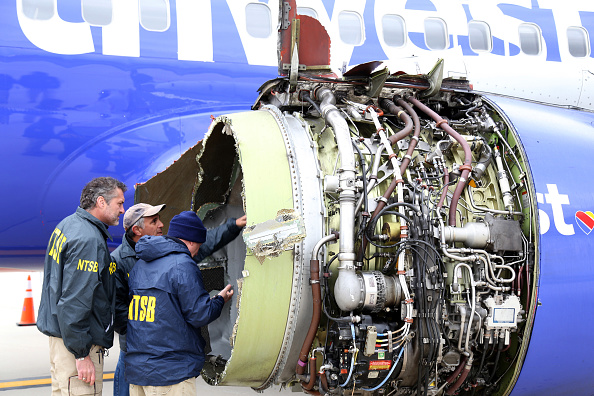Boeing is facing new trouble with its hugely popular 737 jets. And this time it has nothing to do with the still-grounded 737 MAX.
Federal safety officials said Tuesday they want the aerospace giant to redesign the engine covers, or cowlings, on all of the its previous-generation 737 NG planes, nearly 7,000 of which are in service around the world. They also recommended that airlines retrofit their 737s with the new cowlings.
The National Transportation Safety Board (NTSB) recommendation follows an investigation into an April 2018 incident involving a Southwest Airlines 737-700, when “a fan blade broke off one of the engines, punctured a three-panel window and sucked a passenger partly out of the plane,” reports CNBC.
The victim, a bank executive from New Mexico, was pulled back inside by other passengers, but she died in what was the first accident-caused fatality on a U.S. airline in almost a decade.
The NTSB said the Federal Aviation Administration (FAA) “should require Boeing to determine the fan blade impact location or locations on the engine fan case and redesign the structure to minimize the potential of a catastrophic failure,” says Reuters.
The news agency noted that at the time of the fatal failure, the NTSB had been investigating a similar incident in 2016 on another 737-700. No one was hurt in that earlier accident.
Each 737 NG has two engines, built jointly by General Electric and the French aerospace company Safran. The NTSB says there are more than 14,000 such engines in service worldwide, on Boeing jetliners that have made some 400 million flights over more than 20 years, with two reported engine failures, Reuters says.
It’s not the only problem for the 737 NG: dozens of the planes were grounded after inspectors found cracks in the part that connects the fuselage to the wings.
Neither Boeing nor Southwest have commented on Tuesday’s recommendation.
